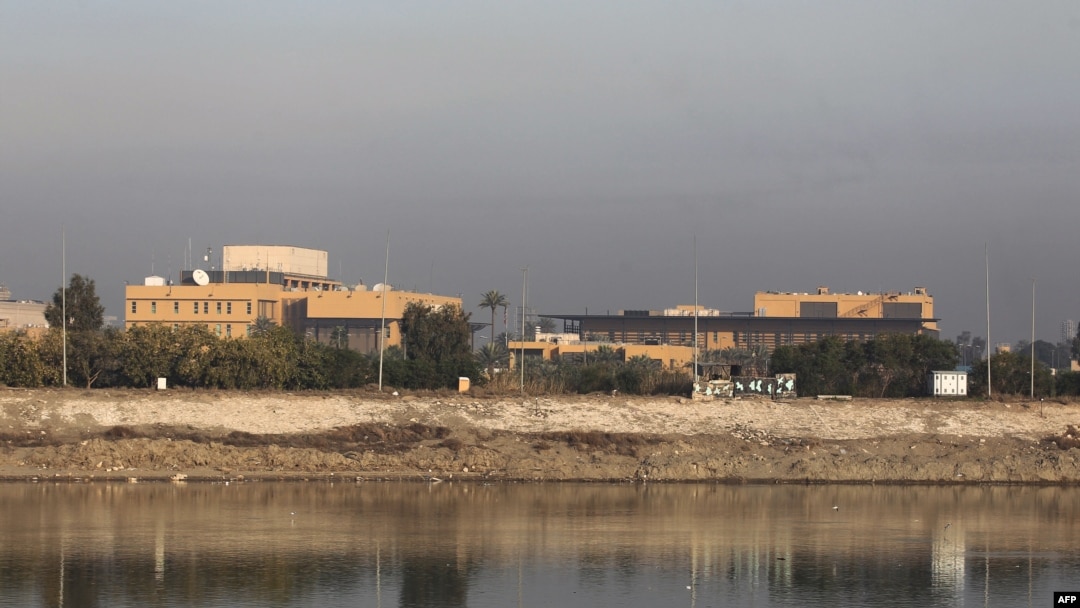Approximately seven mortar rounds landed in the U.S. Embassy compound in Baghdad during an attack early on Friday, a U.S. military official told Reuters, in what appears to be one of the largest attacks against the embassy in recent memory.
It also marked the first time the U.S. embassy had been fired on in more than a year, apparently widening the range of targets after dozens of attacks on military bases housing U.S. forces in Iraq and Syria since mid-October amid fears of broadening conflict in the region.
No group claimed responsibility, but previous attack against U.S. forces have been carried out by Iran-aligned militias which have targeted U.S. interests in Syria and Iraq over Washington's backing for Israel in its Gaza war.
The U.S. military official, speaking on the condition of anonymity, left open the possibility that more projectiles were fired at the embassy compound but did not land within it.
The official added that the attack caused very minor damage but no injuries.
Explosions were heard near the embassy, in the center of the capital, at about 4 a.m. (0100 GMT) on Friday. Sirens calling on people to take cover were activated.
State media said the attack damaged the headquarters of an Iraqi security agency.
The U.S. military official added that Ain al-Asad air base, which hosts U.S. and other international forces in western Iraq, had also been targeted but the projectiles did not land in the base.
Sheik Ali Damoush, a senior official in the Lebanese group Hezbollah, said in a Friday sermon that attacks by Iran-aligned groups across the Middle East aim to apply pressure for a halt to Israel's offensive in the Gaza Strip. He did not refer specifically to Friday's attack.
The dozens of attacks against U.S. forces in Iraq and Syria have been claimed by a group of Iran-aligned Shi'ite Muslim militias operating under the banner of the Islamic Resistance in Iraq.
The U.S. has responded with a series of strikes that have killed at least 15 militants in Iraq and up to seven in Syria.
'Acts of terrorism'
The attacks pose a challenge for Iraqi Prime Minister Mohammed Shia al-Sudani, who has pledged to protect foreign missions and capitalize on fragile stability to focus on the economy and court foreign investment, including from the United States.
Sudani directed security agencies to pursue the perpetrators, describing them as "unruly, lawless groups that do not in any way represent the will of the Iraqi people," a statement from his office said.
He also said that undermining Iraq's stability, reputation and targeting places Iraq has committed to protect were acts of terrorism.
A U.S. embassy spokesperson called on the Iraqi government to do all in its power to protect diplomatic and coalition personnel and facilities.
"We reiterate that we reserve the right to self-defense and to protect our personnel anywhere in the world," he said.
Aside from its diplomatic staff in Iraq, the United States has about 2,500 troops in the country on a mission it says aims to advise and assist local forces trying to prevent a resurgence of Islamic State, which in 2014 seized large swathes of both countries before being defeated.
Iran-aligned Houthis have been firing at Israel and ships in the Red Sea in a campaign they say aims to support the Palestinians. U.S. warships have shot down several of their projectiles.


